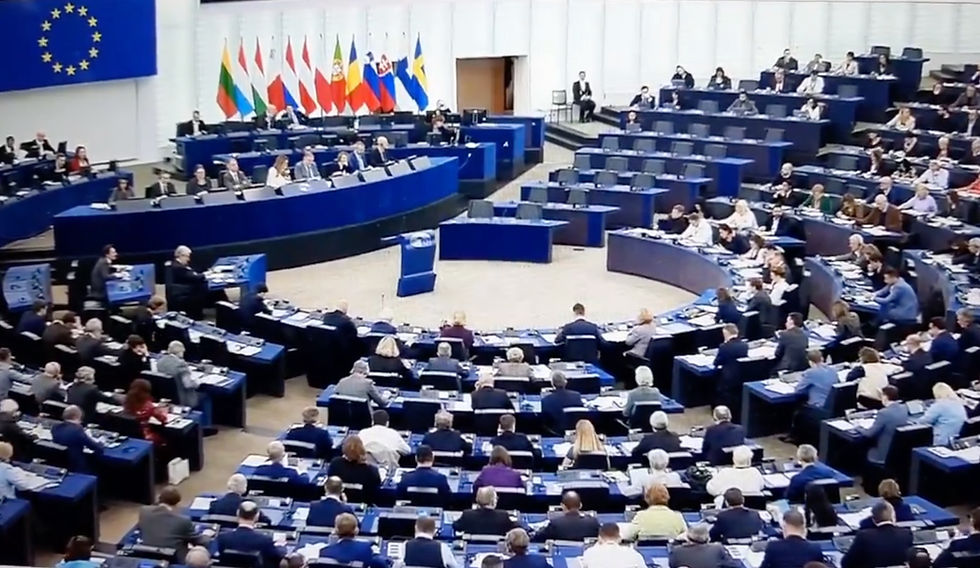The big fiasco: Council voted pro NGT deregulation
- BiO ReporterIn

- Mar 19
- 3 min read
Surprisingly and unexpectedly, the Polish EU Council Presidency has pushed through the decision on the upcoming Commission proposal and paved the way for the trilogue.
To comment on the Council's vote with a little more emotion: It is a major disaster and only benefits the biotech, pesticide and agricultural industries.The Council position fails to protect EU breeders, farmer and food industry, comments IFOAM EU. Now the Parliament must stand strong for patents and traceability during trilogues.

Poland's proposal on how the current rules for genetically modified plants could be watered down in future received the necessary qualified majority among the 27 EU member states yesterday, the Polish Council Presidency announced. However, Belgium has expressed reservations and Germany is also calling for improvements. According to reports, talks with the European Parliament and the EU Commission are to start at the end of April in order to find a compromise between the three divergent draft regulations in the trialogue. This is reported by the online service ‘keine Gentechnik’.
The position a qualified majority during the meeting of COREPER has agreed on the legislative proposal on so-called “New Genomic Techniques” (NGTs) threatens European breeders, farmers, and the food industry. The text neither protects European breeders and farmers from patent claims, nor does it give the agriculture and food industry all the necessary means to safeguard their entrepreneurial freedom.
“The Council position is a striking testimony to the continuous pressure to force an agreement on the NGT proposal as soon as possible and at any costs. But “the costs” will be immense and largely borne by the European food and farming sector, breeders, the environment, and citizens. The Council’s position misses the mark in terms of safeguarding the European breeding sector from the threat of patent protections, despite previous widespread and encouraging political support to find a substantial solution on this crucial issue. On securing food sovereignty and guaranteeing the integrity of organic and conventional GMO-free food production, the Council integrated the possibility of national bans of Category 2 NGTs. Despite good intentions to introduce the right to take national coexistence measures for all NGTs, the corresponding amendments in the text are not workable because they are not reflected in a legal article and put the burden on organic operators by referring to the Organic Regulation. Beyond this, a full supply chain traceability system is needed for operators to have full freedom of choice – a mere seed label is not sufficient.” Jan Plagge, president of IFOAM Organics Europe.
The trilogues as a last chance
"The European Parliament has rightfully decided to introduce traceability in their position. Together with the Council’s intentions to introduce national co-existence measures for all NGTs, the trilogues are the last chance to get to a text that might establish minimum safeguards for freedom of choice for farmers and producers”, pointed Plagge.
Tina Andres, chair of the German Federation of Organic Food Producers (BÖLW), called the day of the decision a ‘black day for the organic growth industry’. The decision of the EU member states could threaten the organic farming and food industry. ‘Neither the question of liability in the event of unintentional contamination with NGT, nor regulations for true coexistence of cultivation with and without new genetic engineering have been clarified so far – not to mention the patenting of seeds and plants,’ said Andres.
The European non-GMO food industry association ENGA called the Council position ‘highly disappointing’. Without traceability and labelling for the majority of NGT plants, the food sector and consumers would not know whether NGTs are in their value chains or on their plates. From ENGA's perspective, the Council has thus abandoned the right of consumers to information enshrined in the Treaty on European Union. The Association for Food without Genetic Engineering (VLOG) recalled its legal opinion presented in January 2025, according to which the deregulation of NGTs would have ‘serious implications and risks for the entire food sector.’
Author: Karin Heinze
Sources: press releases by IFOAM Organics Europe, BÖLW,
keine-gentechnik, VLOG, ENGA







Comments